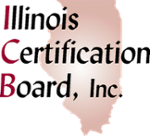Main Content
IAODAPCA Accreditation

The Counseling and Rehabilitation Education program takes pride in being an advanced training program for addiction professionals. We are accredited by the Illinois Alcohol and Other Drug Abuse Professional Certification Association, Inc. (IAODAPCA) . Our certificate curriculum meets the academic requirements to attain the Certified Alcohol and Drug Counselor (CADC) professional credential.
This certificate is available to current students and post-graduates with behavioral health majors.
The Counseling and Rehabilitation Education is excited to announce that they have been selected as one of the eight recipients of the Phase 2 CADC Workforce Expansion Grants, which are being offered through the state of Illinois and ICB. To be eligible for this program, you must be enrolled in an ATP (Accredited Training Program) that is a CADC Workforce Expansion Program (please see the list of eight schools below), and you must be pursuing a CADC credential. Additionally, you must agree to a two-year employment period within an Illinois SUPR-licensed/SUPR-funded prevention, treatment, harm-reduction, or recovery organization. As part of the program, you will be required to sign an affidavit agreeing to these terms.
For full details on the below services, please discuss with your school’s representative for the CADC Workforce Expansion Program
- Tuition Payments
- Internship Stipends
- CADC Application, Examination & Certification Fees
- Laptop & ATP-required Textbook
- Transportation
- Childcare
- Graduate Placement Support
- Student Support Services
- Legal Support Services
- Certificate Requirements
- Mission
- Student Learning Objectives
- Reports
- Substance Use and Prevention Sites
How to apply
To apply for the certificate email Yancy Cruz-Virella -yancy.cruz@siu.edu.
Accreditation
The Substance Use Disorders and Behavioral Addiction Certificate Program is accredited by the Illinois Alcohol and Other Drug Abuse Certification Association, Inc. (IAODAPCA), for the purpose of professional certification in Illinois.
 401 E Sangamon Ave
401 E Sangamon Ave
Springfield, IL 62702
217-698-8110
Program Goals
Faculty in the program recognize the uniqueness of human beings and are dedicated to helping graduate students obtain the knowledge, skills, and experiences necessary to work with a wide range of clientele. Through a combination of course and clinical experiences, SIU CARE graduates will demonstrate the behaviors and possess the attributes which are required of competent, professional counselors:- CARE graduates demonstrate the content knowledge and dispositions necessary to be effective counselors and social justice advocates in their specialty areas.
- CARE graduates appropriately respond to the unique combination of cultural variables, including ability, age, beliefs, ethnicity, gender, gender identity, race, level of acculturation, and socioeconomic status, that influence the counseling process.
- CARE graduates understand that human development occurs in critical contexts that are influenced by a person’s race, ethnicity, religion, and factors such as poverty, loss, developmental and physical trauma, and access to resources.
- CARE graduates conceptualize the career decision-making process as developmentally influenced, and individually determined.
- CARE graduates value the influence of a strong working alliance built upon honesty and trust, in achieving success in the therapeutic relationship.
- CARE graduates differentiate between theories of group counseling and utilize effective interventions and leadership skills in facilitating several types of groups.
- CARE graduates possess an understanding of developmentally and culturally appropriate approaches to assessment and testing.
- CARE graduates value the use of statistically supported, evidence-based psychoeducational and psychotherapeutic interventions in their practice.
- CARE graduates who specialize in clinical mental health counseling promote the development of healthy coping capacities and support systems, for individuals who identify as a person with mental illnesses, to assist them in improving their quality of life.
- CARE graduates who specialize in clinical rehabilitation counseling advocate for the removal of functional, environmental, and social barriers that impede self-sufficiency and reduce the quality of life, for persons who identify as an individual with a disability.
Program Objectives
- CARE graduates possess the content knowledge and dispositions necessary to be effective counselors and social justice advocates in their specialty area
- CARE graduates appropriately respond to the unique combination of cultural variables, including ability, age, beliefs, ethnicity, gender, gender identity, race, level of acculturation, and socioeconomic status, that influence the counseling process.
- CARE graduates understand that human development occurs in critical contexts influenced by a person’s race, ethnicity, religion, and factors such as poverty, loss, developmental and physical trauma, and access to resources.
- CARE graduates conceptualize the career decision-making process as developmentally influenced and individually determined.
- CARE graduates value the influence of a strong working alliance built upon honesty and trust in achieving success in the therapeutic relationship.
- CARE graduates differentiate between group counseling theories and utilize effective interventions and leadership skills in facilitating various types of groups.
- CARE graduates maintain an understanding of developmentally and culturally appropriate approaches to assessment and testing.
- CARE graduates value the use of statistically supported, evidence-based psychoeducational, and psychotherapeutic interventions in their practice.
- CARE graduates who specialize in clinical mental health counseling promote healthy coping capacities and support systems for individuals who identify as persons with mental illnesses to assist them in improving their quality of life.
- CARE graduates who specialize in clinical rehabilitation counseling advocate for removing functional, environmental, and social barriers that impede self-sufficiency and reduce the quality of life for persons who identify as an individual with a disability.



